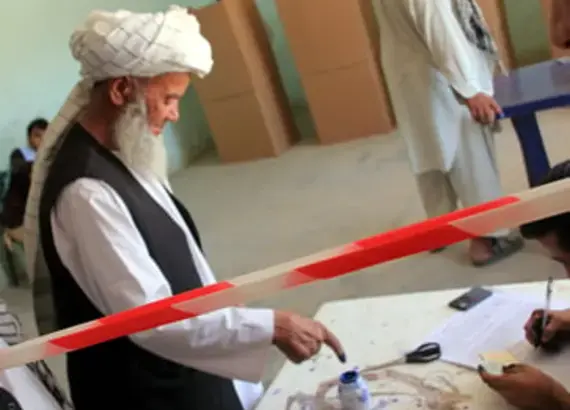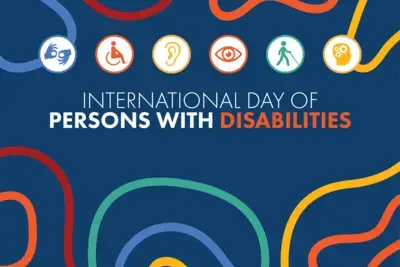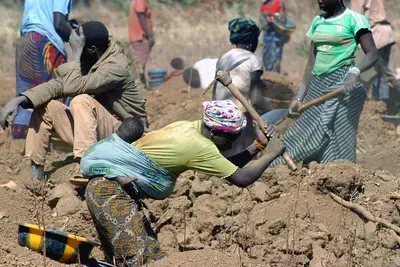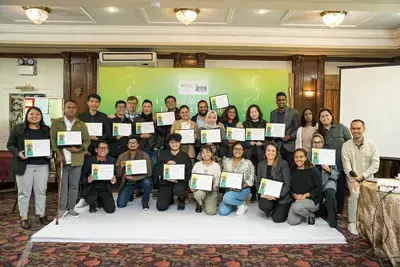
Success Story
Electoral Reform Needed to Build Public Confidence in Afghan Electoral Process and Political Institutions
Noting the flaws in Afghanistan’s electoral system and tensions resulting from allegations of fraud and other irregularities, NDI called for a formal and comprehensive review of the country’s electoral system that would lead to reforms. Unless such actions are taken, public confidence in Afghan elections and governance will continue to erode, the Institute said.
NDI’s statement came as the Afghan Independent Election Commission (IEC) released the final certified results for the Sept. 18 Wolesi Jirga polls for 33 of the country’s 34 provinces. Originally scheduled for release on Oct. 30, the results were delayed to accommodate polling station audits and recounts, and to allow the Electoral Complaints Commission (ECC) to complete investigations of complaints serious enough to affect the numerical results.
As NDI and other observer groups reported in the lead up to the September polls, the IEC adopted several measures this year to mitigate the fraud that marred Afghanistan’s past elections. While the new measures did not eliminate fraud, they were effective in making it easier to detect electoral irregularities. The IEC’s audits and recounts eventually led to the invalidation of more than 1.3 million votes. The ECC’s investigation of complaints resulted in the disqualification of 19 candidates who had been listed as winners based on preliminary results, but there was a lack of transparency in the ECC’s work. For example, the specific reasons for the disqualifications have yet to be revealed, fueling suspicion that there was political interference in the electoral process.
In addition, Afghanistan’s attorney general has recently intervened in the electoral process, challenging the results announced by the IEC. This may further delay the implementation of results. While the attorney general’s legal authority to intervene in the work of the IEC or ECC is far from clear, this controversy might have been avoided if the actions of these electoral bodies had been more transparent, NDI said. The attorney general’s actions underscore the defects in Afghanistan’s legal framework for elections as well as shortcomings in the nation’s constitutional framework, which fails to adequately define the legal authority of the courts, executive branch and electoral bodies.
NDI said the review it proposed should be led by Afghans and supported by the international community to address the persistent flaws in the electoral process and to offer practical recommendations for reform.
These reforms should involve key elements, such as ensuring the independence of Afghan electoral bodies as well as transparency in how they conduct their work, promoting an electoral legal framework that supports effective participation by political and civic groups, and developing an accurate voter registry. This review could help reduce tensions among political entities, reinforce the legitimacy of Afghan governing institutions and guarantee that the will of the Afghan people is respected in future elections, according to NDI.
If decisive actions are not taken to address the problems that marred the 2009 and 2010 polls, future elections will remain at risk, NDI said. The ability to govern the country would then be undermined by the very processes designed to provide legitimacy to the government. The Institute noted that there were calls for a similar review after the 2009 polls, which, had it been undertaken, might have prevented some of this year’s problems.
NDI has been conducting a long-term observation and analysis of the Afghan election process involving 164 Afghan observers and international analysts. On election day, NDI observers visited more than 700 polling stations in 30 of the country’s 34 provinces and later released a preliminary statement. The Institute, which has been working in the country since 2002, also has conducted programs to promote increased participation by women in the political process, support domestic election monitors, train candidate polling agents, strengthen political party development and support the work of provincial councils.
Related:
Pictured above: A voter's finger is inked after casting his ballot in the Sept. 18 election in Afghanistan.
Published November 24, 2010



